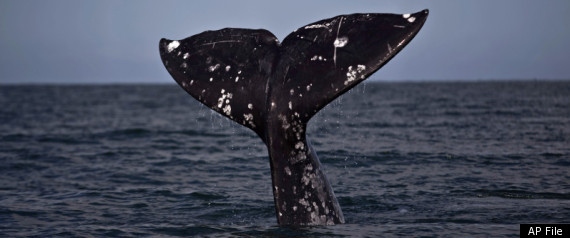 THE CANADIAN PRESS -- HALIFAX - Some marine species are migrating to oceans where they were once extinct because of warming temperatures and polar melt, according to scientists who say the shakeup poses risks to entire ecosystems.
THE CANADIAN PRESS -- HALIFAX - Some marine species are migrating to oceans where they were once extinct because of warming temperatures and polar melt, according to scientists who say the shakeup poses risks to entire ecosystems.Researchers said they have found evidence of various marine life forms relocating halfway around the world because of the disappearance of sea ice in the Arctic.
Chris Reid, a professor of oceanography at the University of Plymouth in England, said they discovered the presence of a microscopic plankton in the North Atlantic 800,000 years after it had disappeared from that area.
It would be the first evidence of a trans-Arctic migration for plankton in modern times and one of the first times in tens of thousands of years that water has flown freely between the two oceans after ice retreated from the Alaska coastline.
They have also spotted a Pacific gray whale off the coasts of Spain and Israel more than three centuries after it vanished from the Atlantic.
Reid said they are convinced the relocations are the result of melting ice in the North, which has opened a channel for roving species.
"They are a marker of a major transition because the last time we had an opening between the Pacific and the Atlantic was about two to three million years ago," Reid said from Plymouth before the release of the findings Sunday.
"This could have big impacts on living marine resources as well as fisheries and aquaculture."
Reid, whose research with the Sir Alister Hardy Foundation for Ocean Science was released Sunday, is collecting the material as part of a major study on the effects of climate change on marine life.
He said the species shuffle could shake up the marine food web and transform the biodiversity of the Arctic and North Atlantic ecosystems.
Scientists from around the globe say they're already documenting the effects of species relocation due to warming water temperatures.
Full Article
Source: Huffington
No comments:
Post a Comment